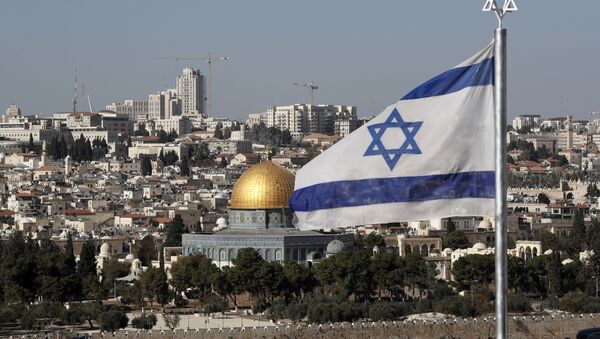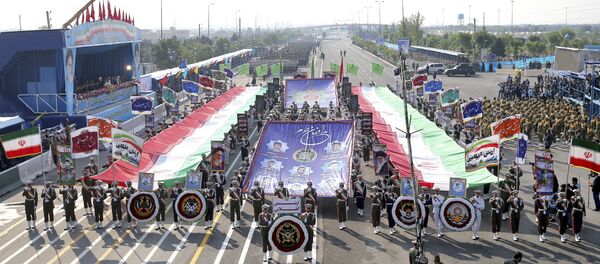According to Haaretz, President Donald Trump’s administration has decided that Israel should not be forced to consider abandoning its alleged nuclear weapons without recognition by all Middle Eastern nations of the Jewish state’s right to exist.
READ MORE: Ex-CIA Officer Estimates Impact of Netanyahu’s Intel on Trump Iran Decision
While Israel is not a signatory to the Treaty of the Non-Proliferation of Nuclear Weapons (NPT), it has repeatedly stated that the issue of nuclear weapons could not be dissociated from security issues in the Middle East, including Tel Aviv’s historically hostile relations with its Arab neighbors. Israel has also claimed that some of the signatories – Iran, Syria and Libya – are not complying with the treaty and have attempted to develop nuclear programs.
Last week, Washington expressed its adherence to a nuclear-free Middle East and, in a way, adopted Israel’s stance, having submitted two position papers to the Geneva preparatory committee for the 2020 Nuclear Non-Proliferation Treaty Review Conference:
“Regrettably, efforts to make progress have been hampered by conceptual differences among the regional states regarding establishing such a zone and the unwillingness of some regional states to constructively address those differences. Rather than addressing these issues directly with their regional neighbors, some regional states have sought to use the [treaty] review cycle as a way to force action, including trying to impose conditions that could not garner consensus among regional states. Such efforts are mistaken and unproductive,” the paper read.
In its position papers, the United States has also recalled the 2012 talks on establishing a nuclear-weapons-free zone in the Middle East, held by Finland, stating that the negotiations on nuclear weapons should have been addressed along with certain political and security issues in the region.
“The Middle East region suffers from a persistent and well-documented lack of trust among the regional states, owing from decades of instability, armed conflict, and politically-motivated division. Efforts to build trust and confidence in the region are significantly complicated by the refusal of a number of regional states to recognize and engage Israel as a sovereign state and proclivity to instead pursue divisive actions to isolate Israel wherever possible,” the paper read.
The United States highlighted that Iraq, Iran, Libya and Syria have pursued undeclared nuclear weapons programs, thus reiterating Israel’s stance:
“The lack of trust in the region is further exacerbated by a legacy of persistent and ongoing noncompliance in the region with [weapons of mass destruction]-related obligation. Iran, in particular, continues to engage in extensive destabilizing activities across the region,” the paper read.
Earlier this week, Benjamin Netanyahu announced that Israel had collected proof, allegedly revealing Iran’s lies about its nuclear program after signing the groundbreaking nuclear deal in 2015.
READ MORE: Israel Doesn't Seek War With Iran — Netanyahu
Israel is commonly believed to have nuclear weapons, even though Tel Aviv has neither confirmed nor denied being a nuclear power; it is estimated that the country possesses anywhere from 75 to 400 nuclear warheads, as well as various nuclear weapons delivery mechanisms.



